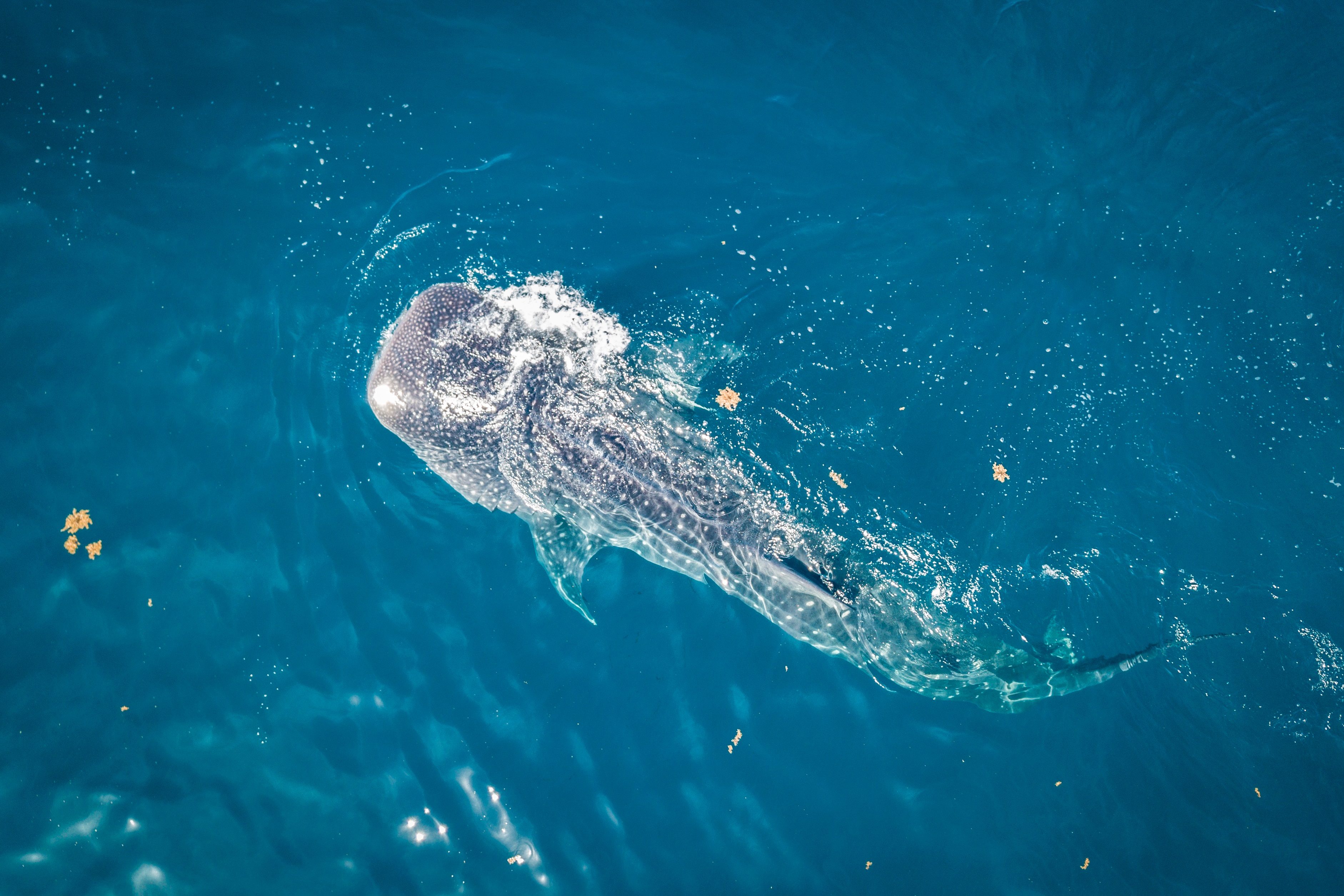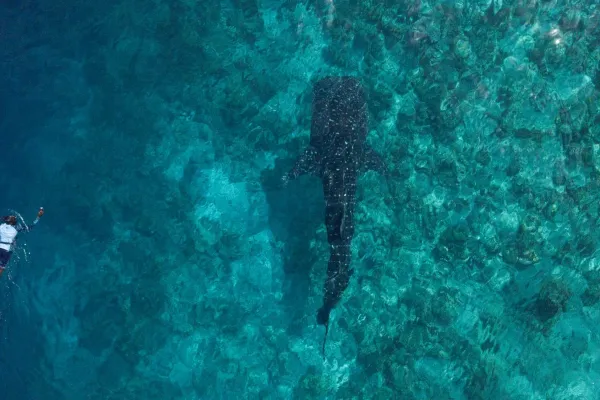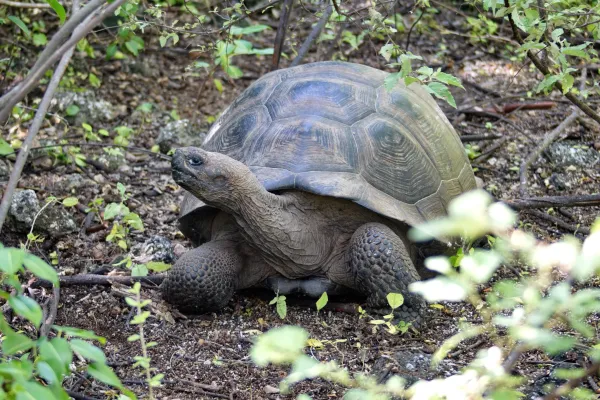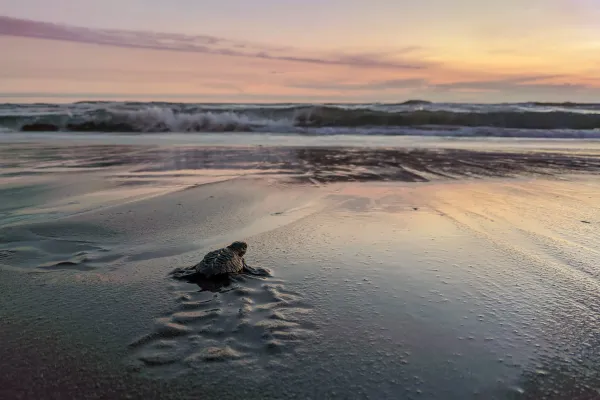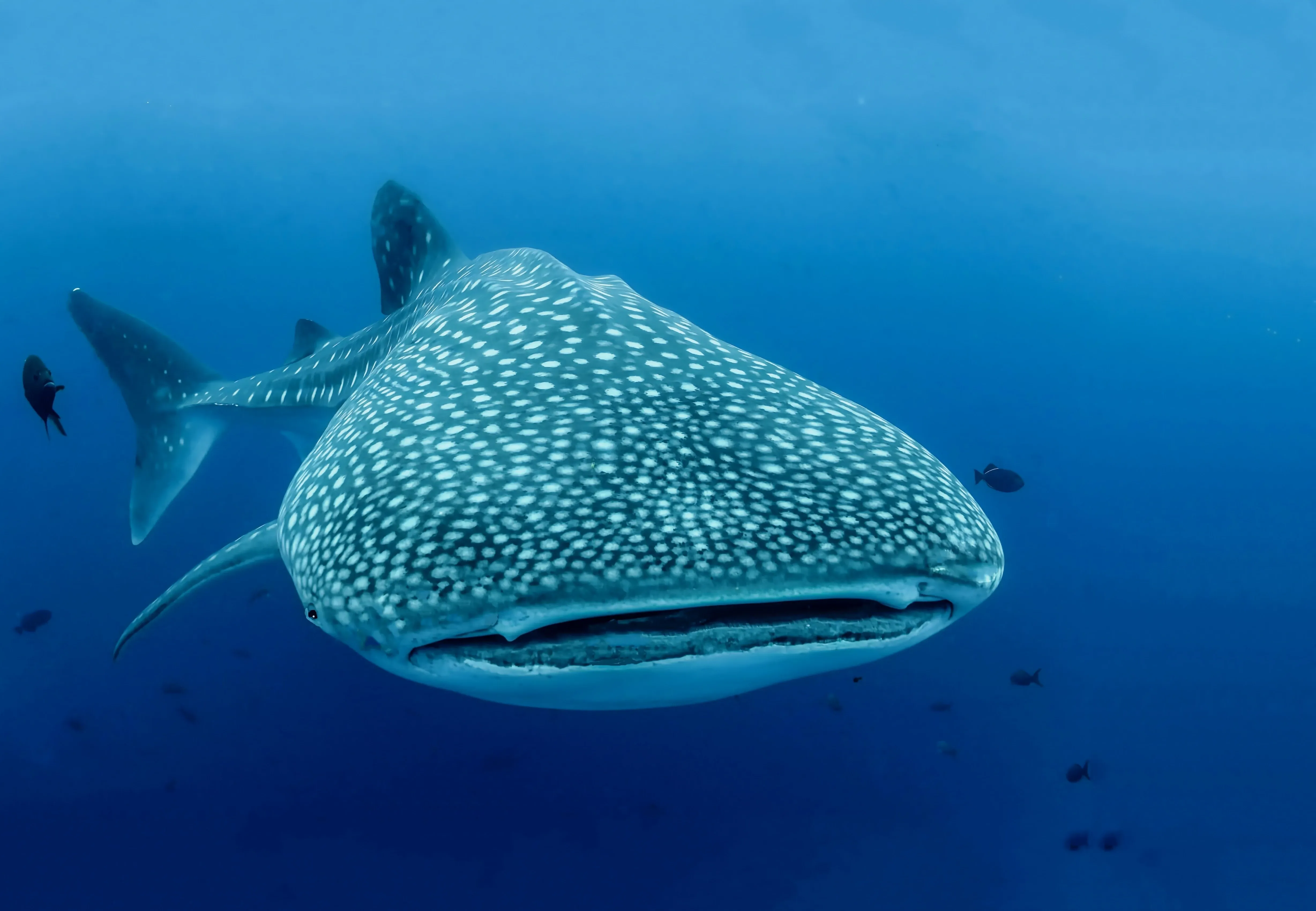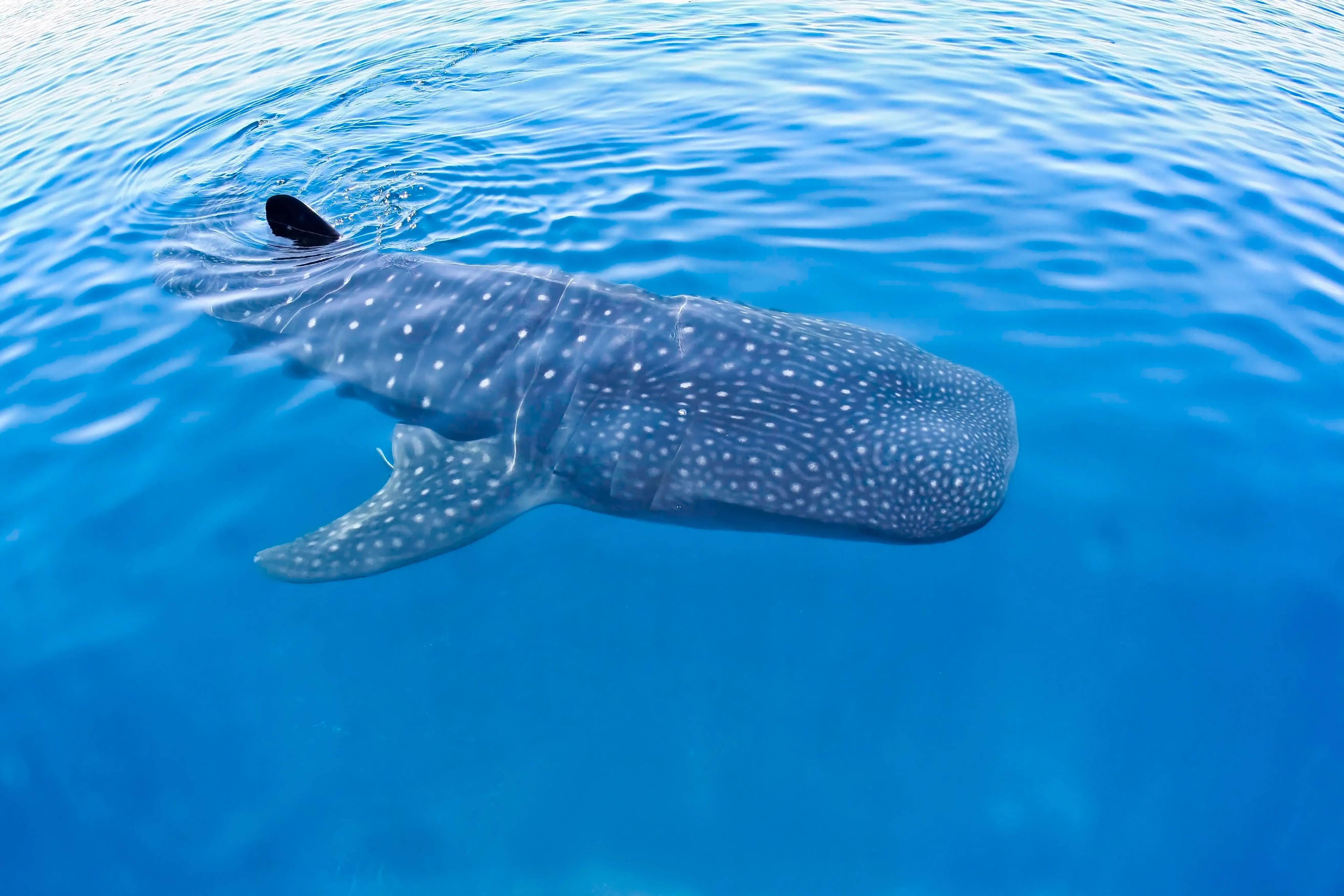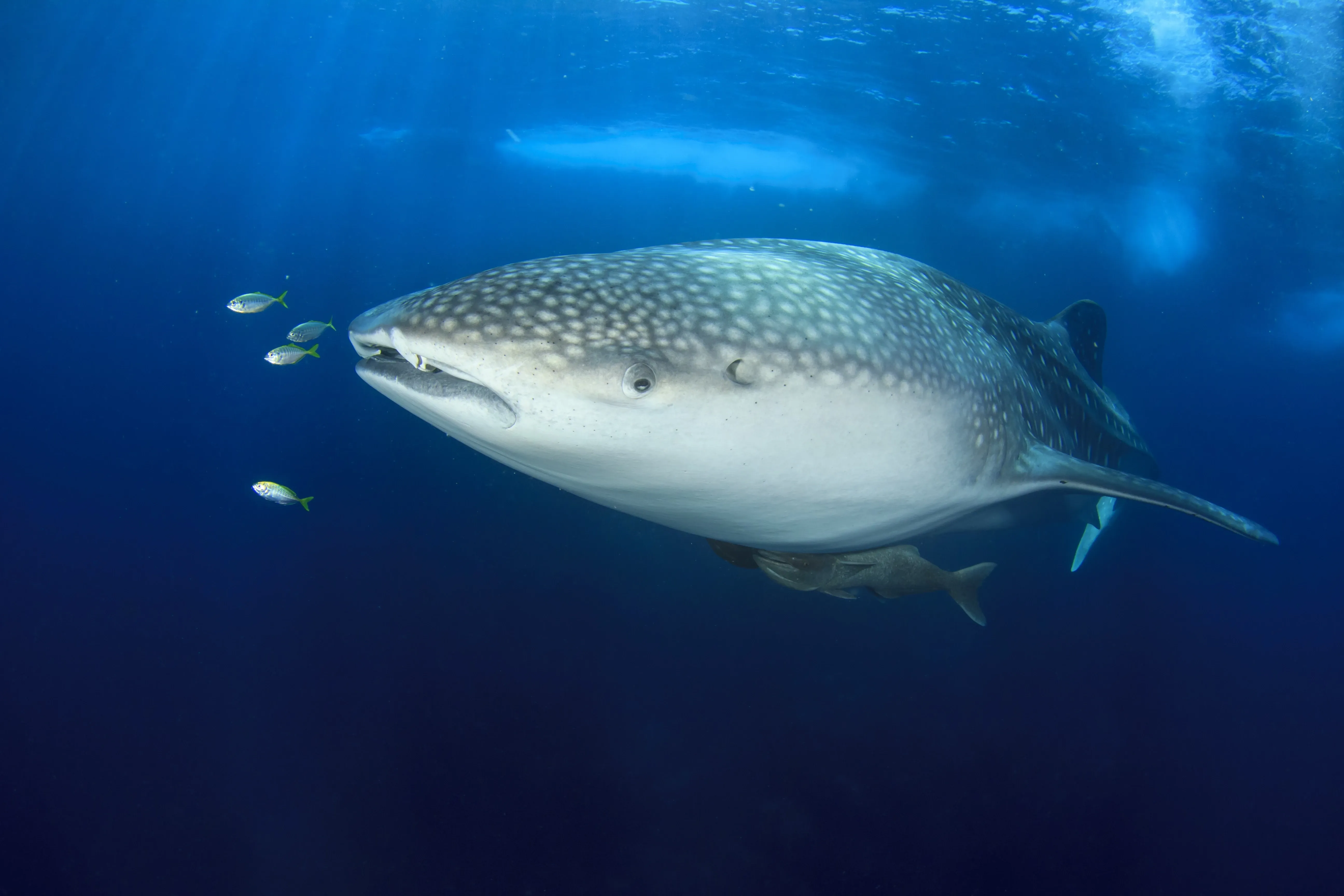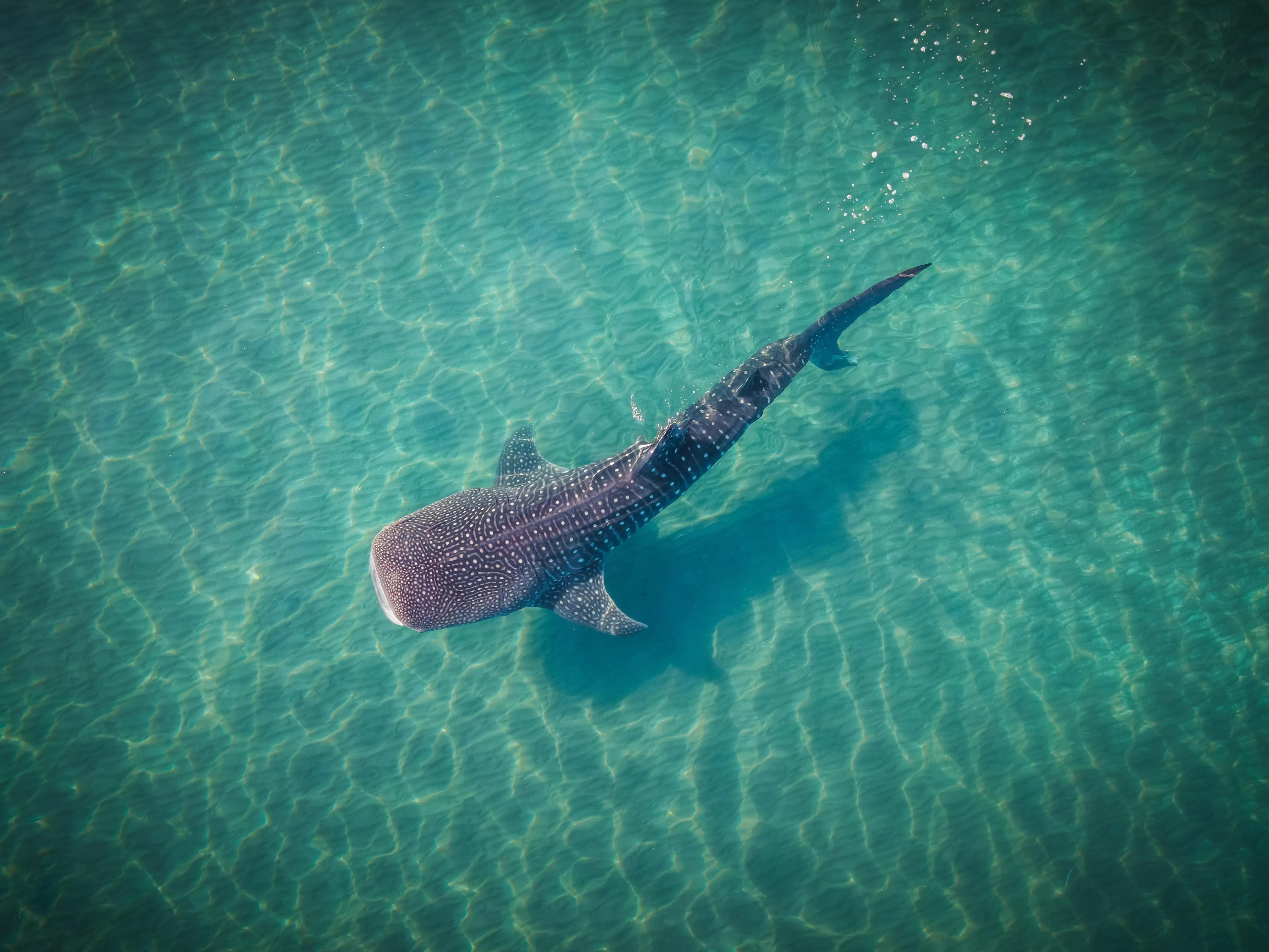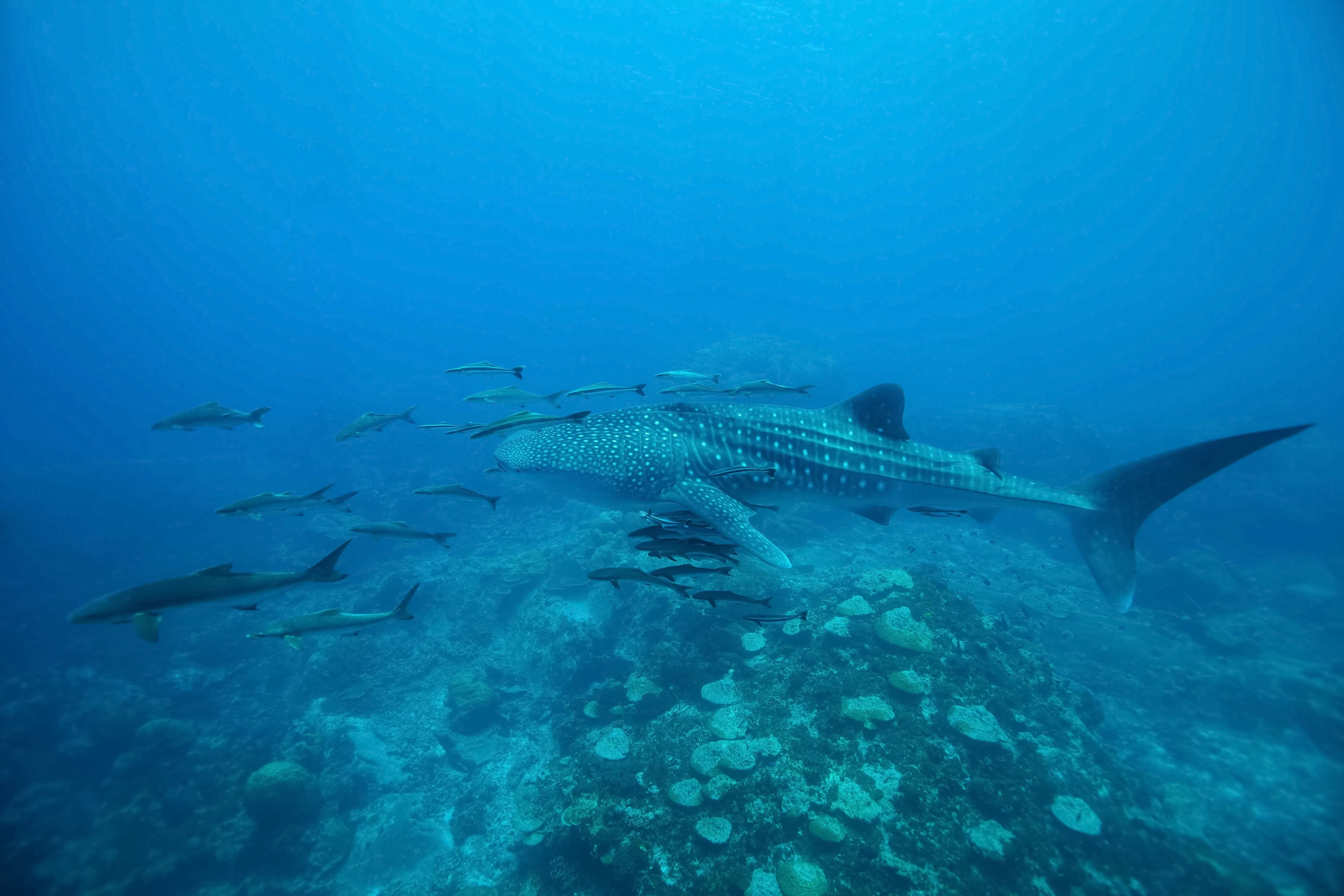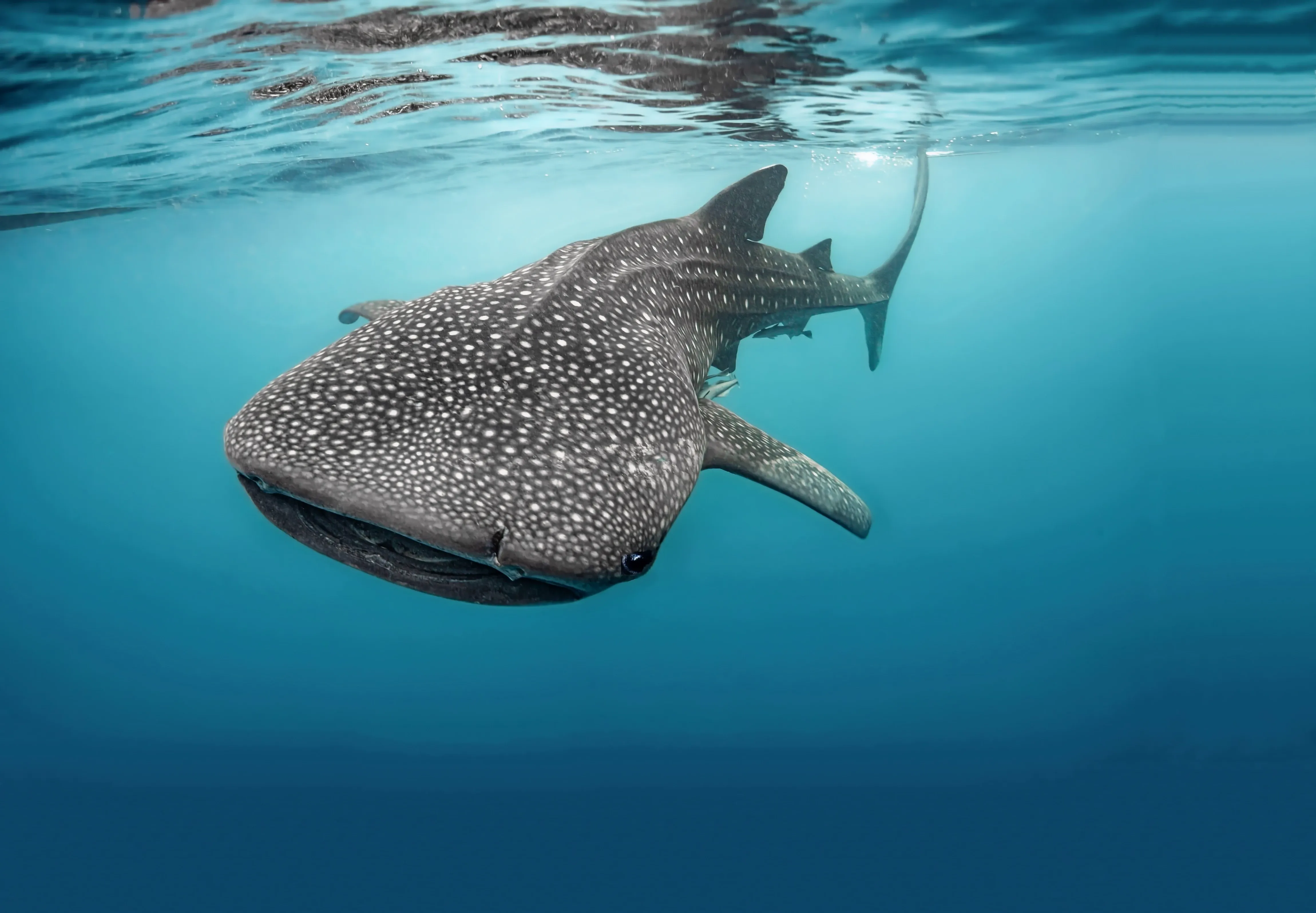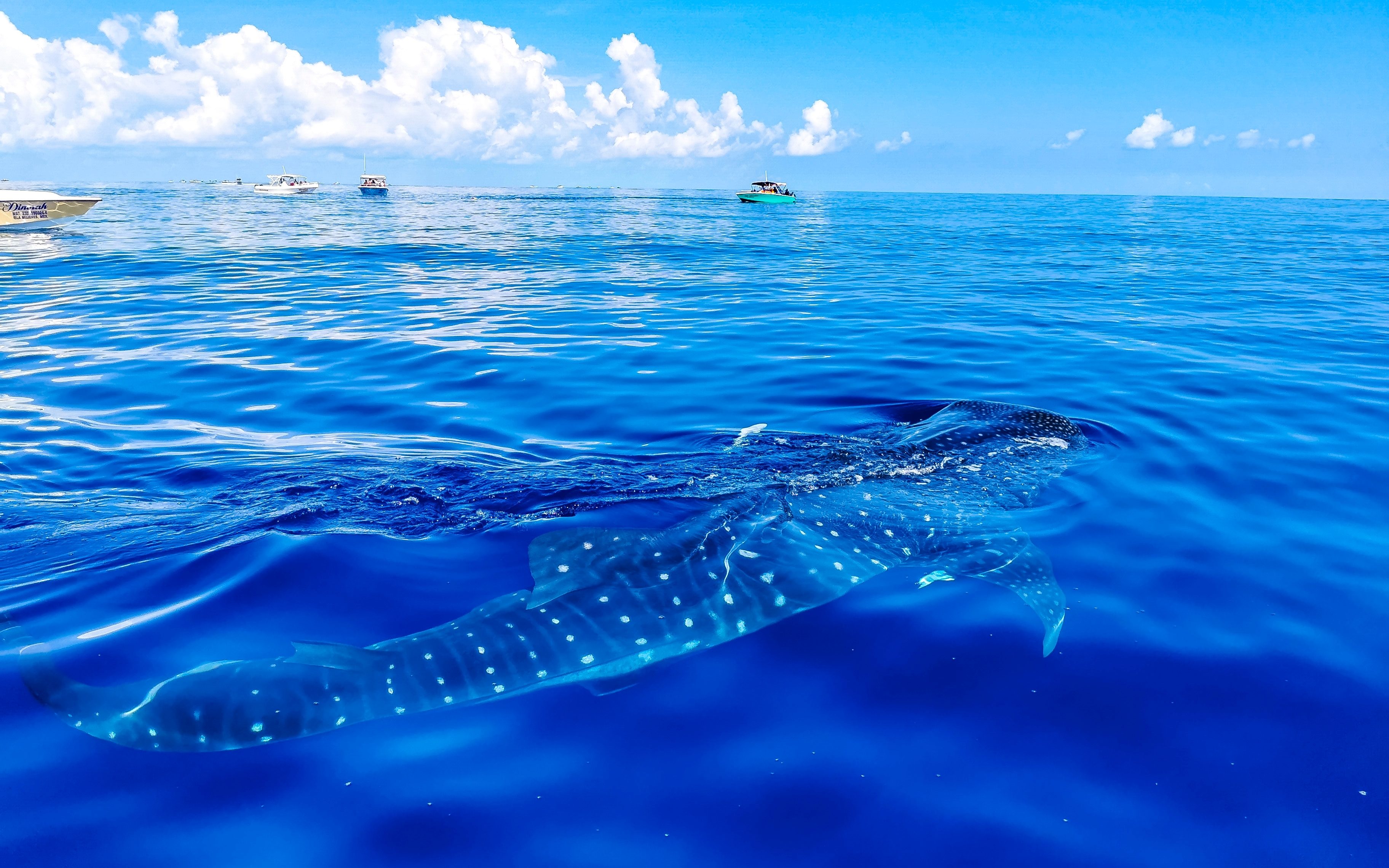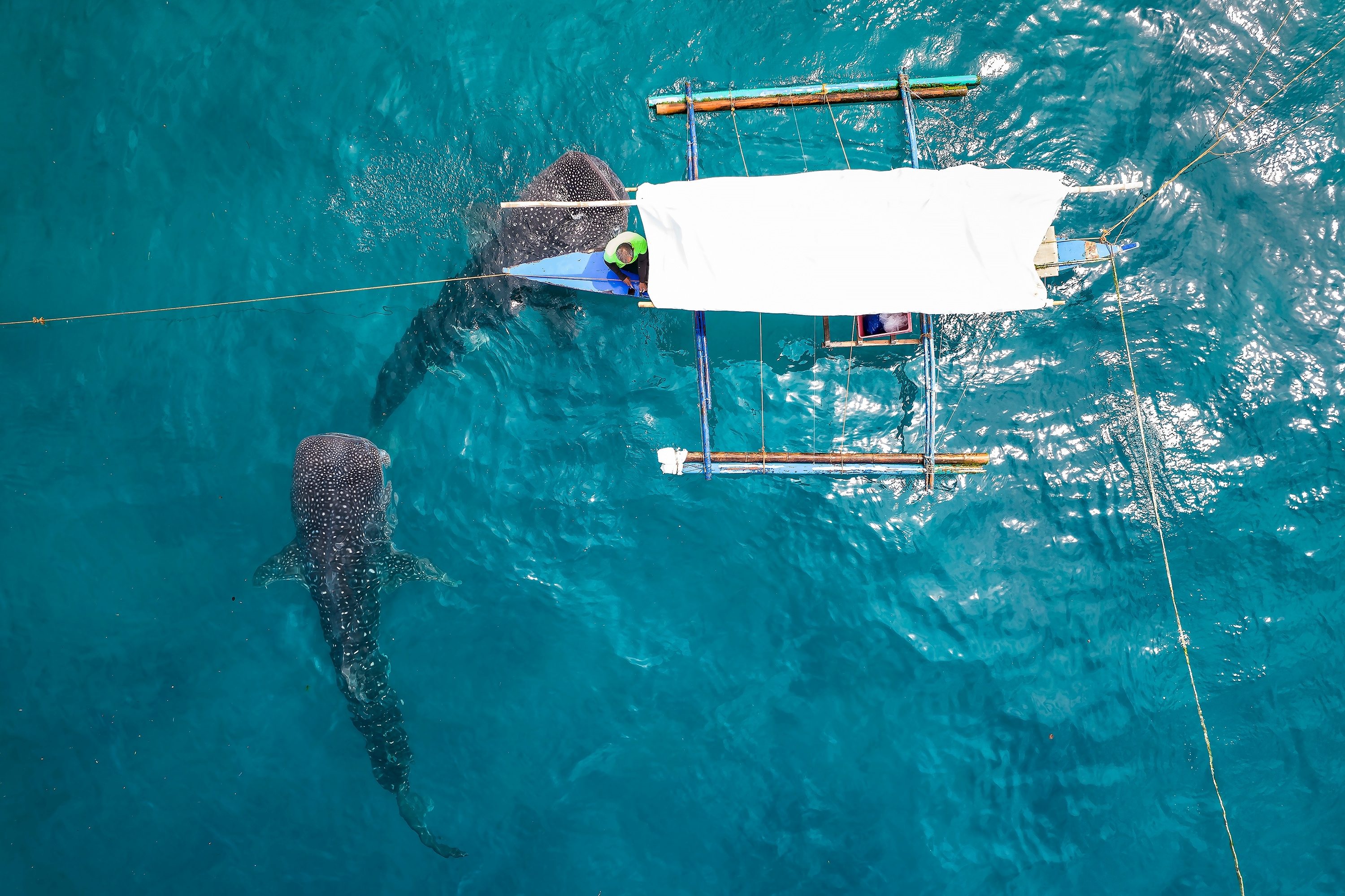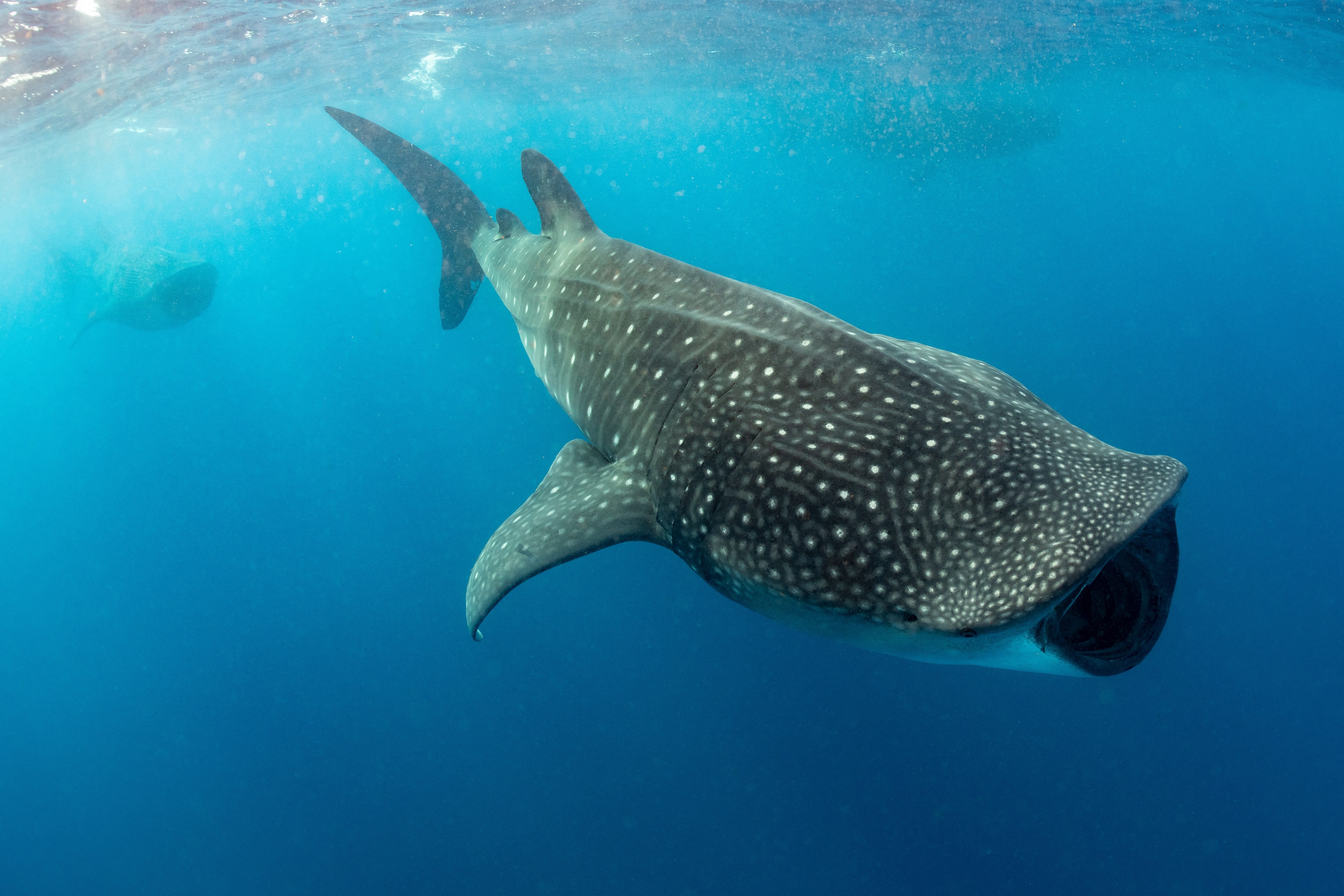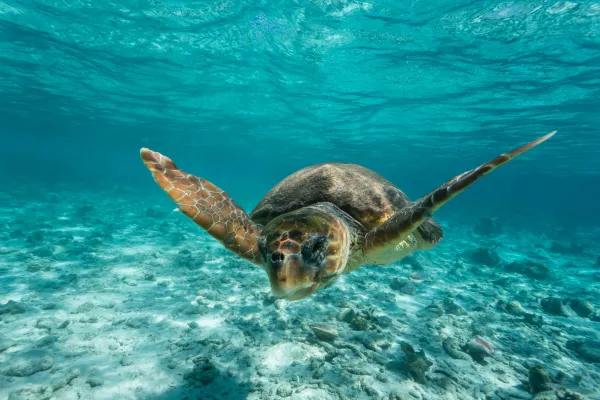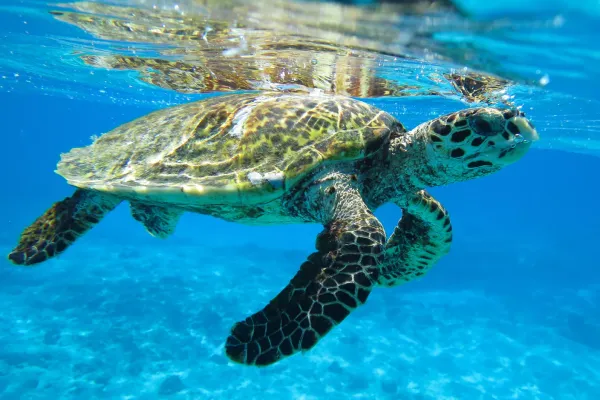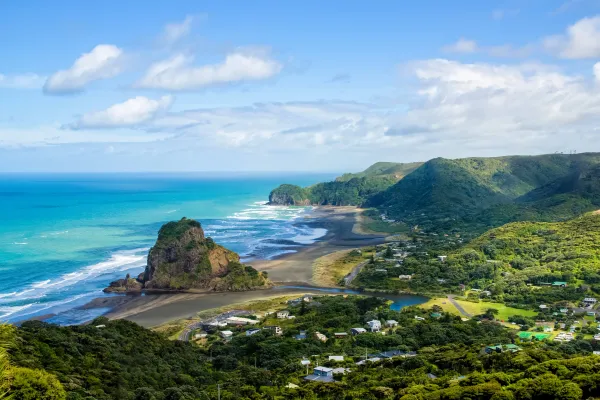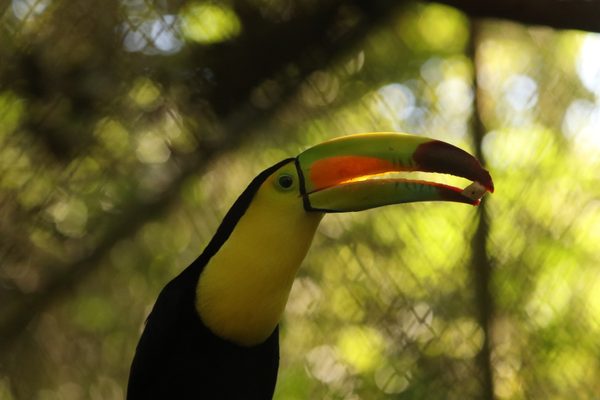Volunteering with whale sharks
Volunteering with whale sharks provides a distinctive and fulfilling opportunity to aid in the conservation of one of the ocean's most remarkable species. Revered for their gentle demeanour and enormous size, whale sharks are essential to maintaining healthy marine ecosystems.
As a volunteer, you'll engage in practical activities that directly support the protection and preservation of these creatures. This may involve monitoring their behaviour, tracking their move-ments, or assisting with research and community outreach efforts.
Highlights of volunteering with whale sharks
- Experience the thrill of observing and monitoring whale sharks in their natural ocean habitat.
- Play a vital role in important conservation projects and contribute to essential research efforts.
- Gain valuable skills in marine monitoring, data collection, and ecosystem management.
- Support and promote ethical practices that help ensure the survival and well-being of whale sharks.
- Immerse yourself in the beauty of the ocean and the awe-inspiring underwater world.
This hands-on experience not only helps protect these incredible animals but also enriches your knowledge of marine conservation and the complex dynamics of ocean life. By joining a volunteer project with the focus on whale shark or marine conservation, you can make a real difference for whale sharks and the vibrant marine habitats they call home.
Whether motivated by a love for the ocean, a desire to make a meaningful contribution, or a fascination with these gentle giants, volunteering with whale sharks offers a rewarding way to support the health of our planet and help ensure the future of these extraordinary animals.
What is unique about whale sharks?
Whale sharks are truly extraordinary creatures, celebrated for their gentle nature and immense size, making them the largest fish and shark in the ocean. Their distinctive appearance features a striking pattern of white spots and stripes on a bluish-gray body, with each individual displaying a unique pattern similar to human fingerprints. This distinct marking system helps researchers identify and study individual whale sharks.
Despite their massive size, which can range from 12 to 18 meters, these filter-feeding giants primarily consume tiny plankton and small fish, gliding gracefully through the water with their mouths wide open to filter their food. Though they have about 3,000 small teeth, measuring only around 3 millimetres each, they pose no threat to humans.
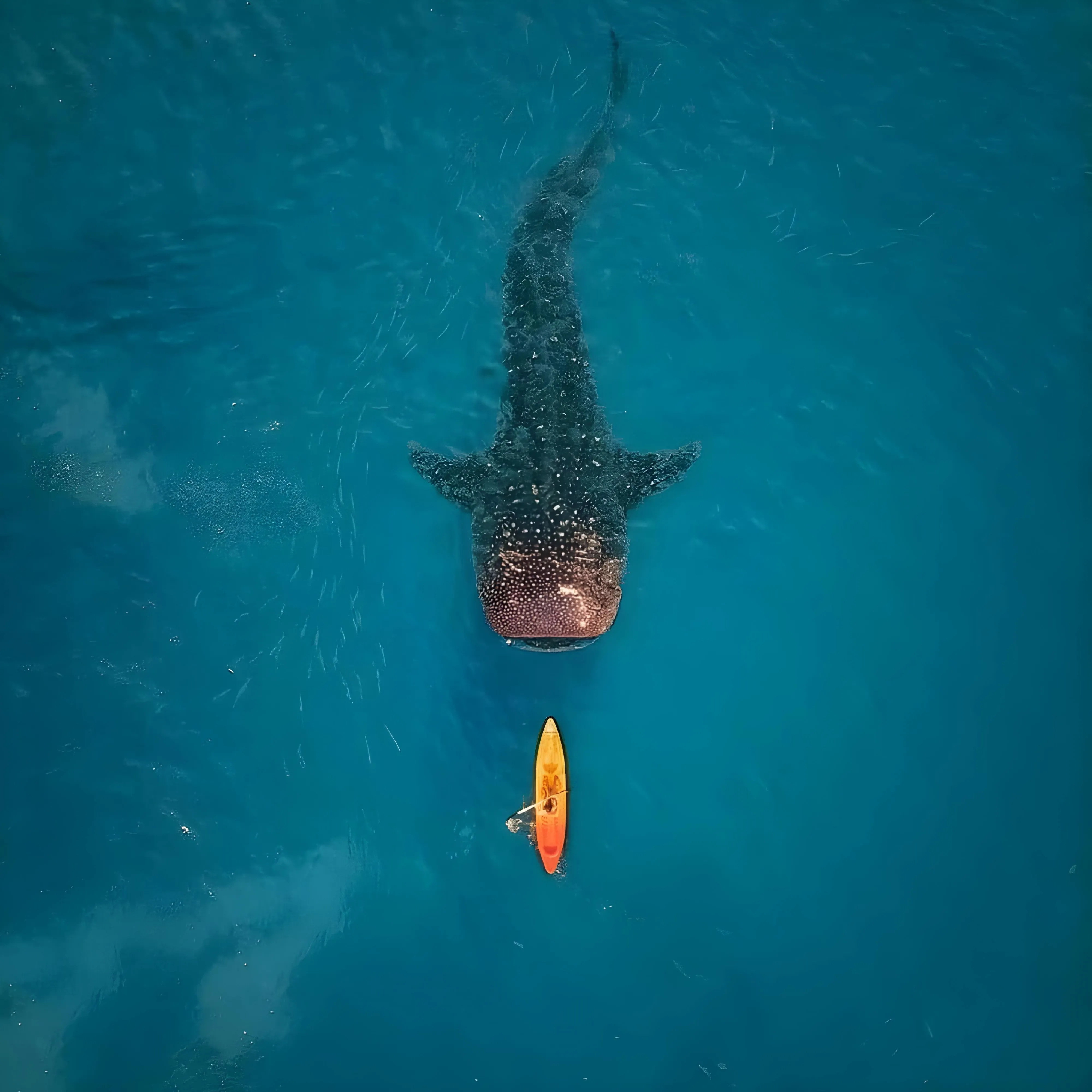
Whale sharks are highly migratory and can be found in tropical waters from Oceania to Central America, Africa, and Asia, though they do not inhabit the Mediterranean Sea. Their behaviour, particularly their reproductive cycle, remains largely a mystery to researchers.
While whale sharks are often seen alone, they also form large groups, especially in areas with abundant food. These aggregations, which can number in the hundreds, occur during feeding seasons at specific locations such as the Yucatán Peninsula in Mexico, Ningaloo Reef in Australia, and the Philippines. These gatherings are crucial for feeding and may also play a role in mating, although their social behaviours and reproductive activities are not yet fully understood, as no one has observed them mating or giving birth.
Why do we need to protect whale sharks?
As the largest fish in the ocean, their role as filter feeders is crucial for maintaining marine ecological balance. By consuming vast amounts of plankton and small fish, they help regulate these populations, supporting the health of marine ecosystems and enhancing biodiversity. Whale sharks also serve as indicators of ocean health due to their migratory patterns and feeding behaviours.
However, whale sharks face significant threats from vessel strikes, overfishing and accidental bycatch, habitat destruction, and climate change, which endanger their populations. Their numbers are declining despite their importance to marine ecosystems.
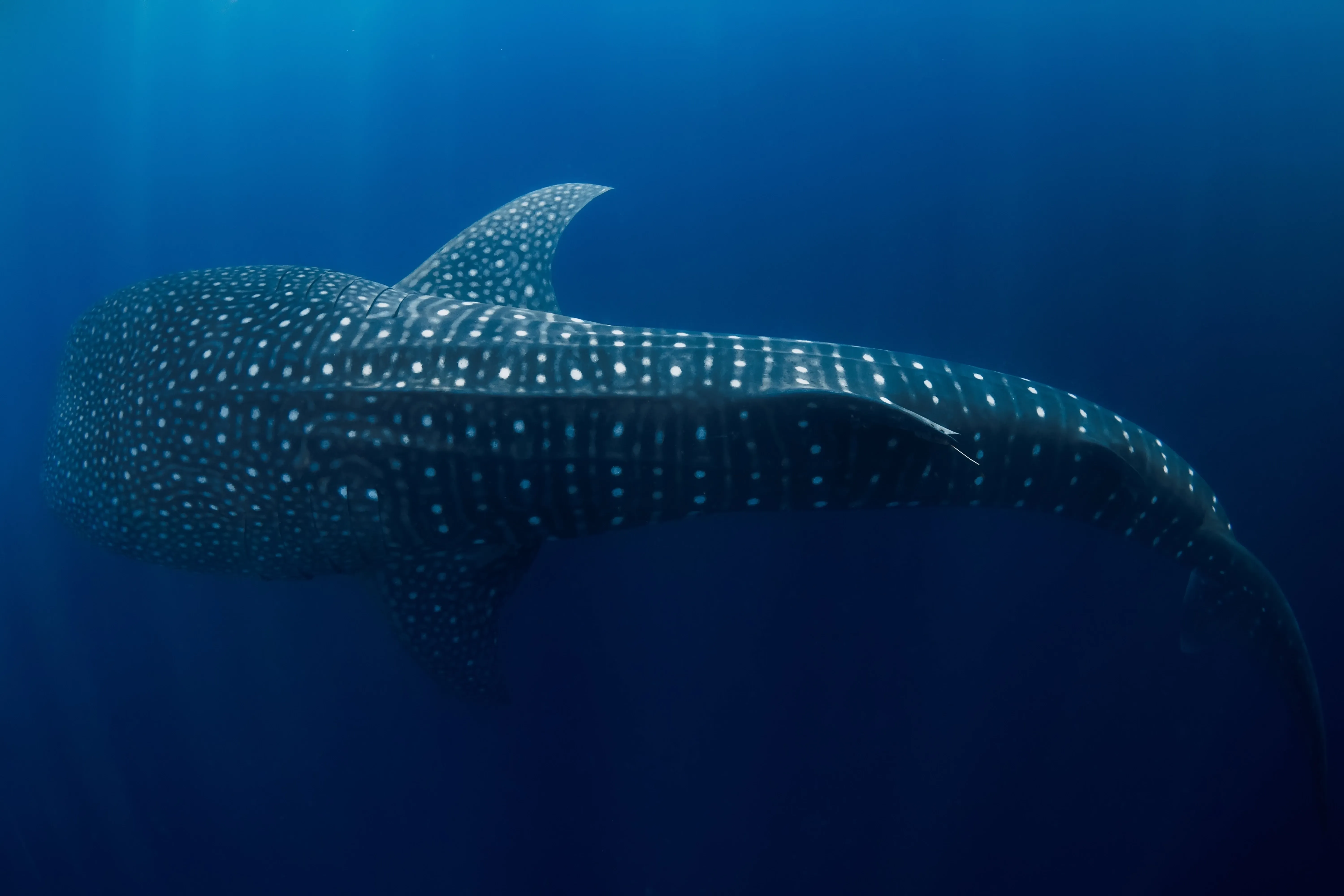
By safeguarding these gentle giants, we not only help prevent their decline but also support the broader conservation of ocean environments. Protecting whale sharks contributes to the preservation of other marine species and fosters a balanced and resilient marine ecosystem.
Moreover, whale shark conservation can boost local economies through eco-tourism, raising awareness and encouraging sustainable practices. Ensuring the survival of whale sharks is vital for maintaining the intricate balance of marine life and supporting both wildlife and human communities.
How to save whale sharks?
To effectively conserve whale sharks, a holistic approach is essential to address their unique challenges. Protecting their natural habitats is a primary focus, which involves setting up and enforcing marine protected areas where these creatures feed and breed. Combatting illegal fishing activities and promoting sustainable marine practices are crucial to preserving these environments.
Efforts to curb illegal activities also play a significant role in whale shark conservation. Strengthening regulations against illegal fishing, supporting marine patrols, and deploying modern tracking technologies can help reduce threats to these majestic animals. It’s equally important to involve local communities in conservation initiatives. Raising awareness about the significance of whale sharks and providing alternatives to harmful practices can mitigate negative human impacts.
In addition to these efforts, research and monitoring are vital. Studying whale shark behavior, migration patterns, and reproductive habits provides critical data that can shape effective conservation strategies. Regularly tracking whale shark populations and monitoring changes in their environments ensures that conservation efforts are effective and adaptable to new challenges.
»Protecting whale sharks is not just about saving a species, it's about preserving the delicate balance of our marine ecosystems.«
Whale sharks - Frequently Asked Questions
What do I need to know about volunteering with whale sharks?
Engaging in whale shark conservation offers a deeply fulfilling experience, but it comes with its own set of challenges and uncertainties. Before committing, it’s essential to research and select an organization whose mission aligns with your own conservation values. It is important to note that eco-tourism with whale sharks in some regions has become heavily commercialized, leading to crowded boat tours and increased stress for the animals, raising ethical questions about the well-being of the whale sharks.
Your responsibilities during the volunteering experience may include tracking whale sharks, collecting and analysing data, supporting habitat protection efforts, and addressing human impacts on marine environments. You may also find opportunities to work on the conservation of other significant marine species.
Be prepared for both physical and mental demands. The role often involves long hours in varying marine conditions, requiring physical endurance and mental fortitude. You might face unpredictable weather, such as storms or high winds, which can occasionally halt boat-based research activities.
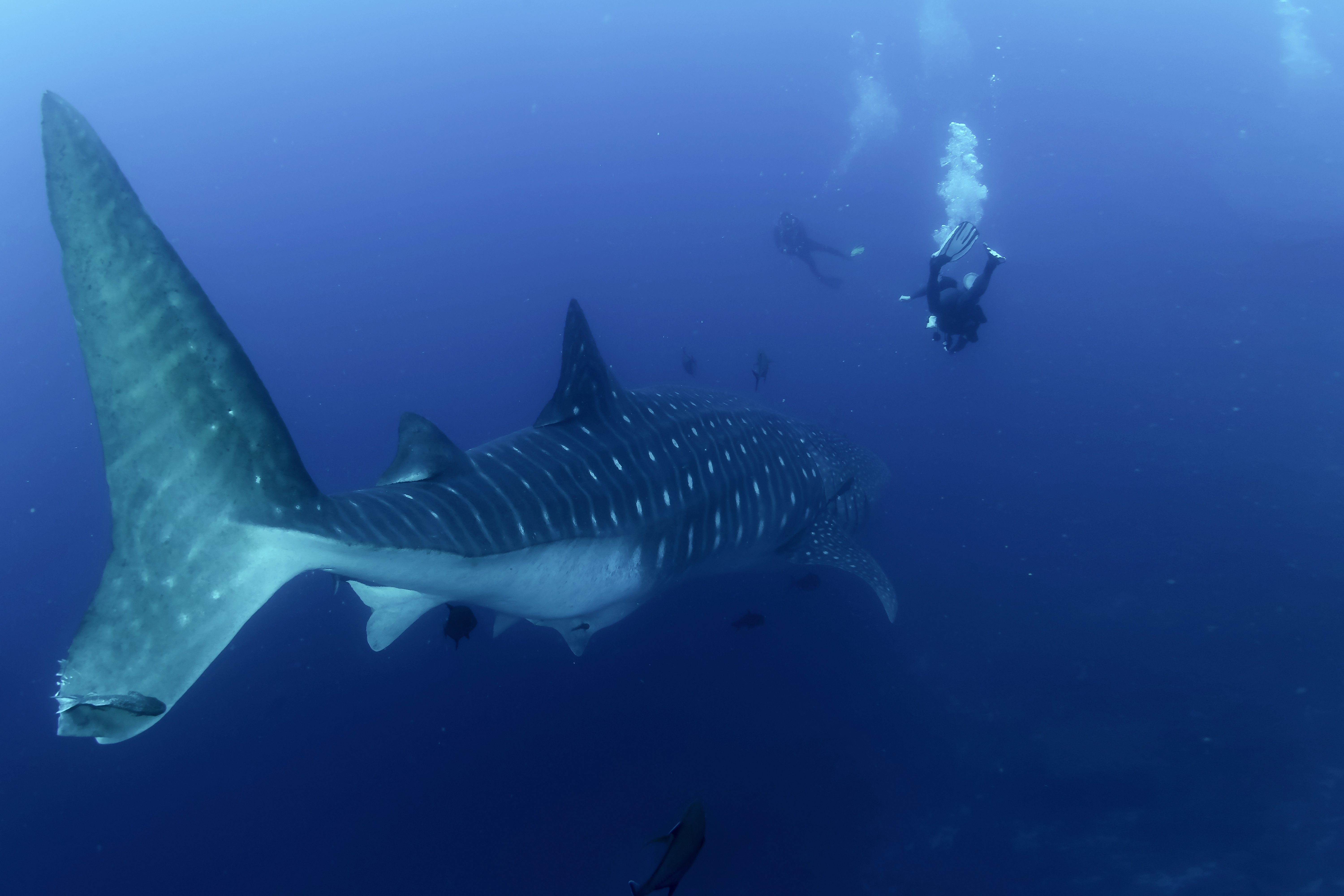
Additionally, nature can be unpredictable, and it’s possible that you might not encounter a whale shark during your volunteer period. Despite these challenges, the work you do remains vital. The data collected, the research conducted, and the efforts in habitat protection are all crucial for advancing conservation goals and improving our understanding of these magnificent creatures.
As part of your volunteer duties, you will need to be proficient in swimming and snorkelling. Some programs may also require a scuba diving certificate, to observe and interact with whale sharks in their deeper habitats. It’s essential that you are comfortable in the water and able to handle various aquatic conditions, as whale sharks are often found in deeper and darker environments.
Volunteering in whale shark conservation also involves a commitment to ethical and sustainable practices. Promoting responsible environmental methods, staying informed about marine ecosystems, and raising awareness about the importance of protecting whale sharks are key components of the role. Your contribution supports the broader mission of marine conservation and the health of ocean ecosystems.
Where can I volunteer with whale sharks?
If you’re interested in volunteering with whale sharks, there are several opportunities available around the world. Organizations dedicated to marine conservation often offer volunteer programs where you can contribute to the protection and study of these majestic creatures. These programs typically take place in regions known for whale shark activity, such as tropical and subtropical waters.
Volunteering with whale sharks can take you to some incredible locations around the world. The Caribbean offers several opportunities, particularly around the islands of Belize and the Bahamas, where these gentle giants are commonly seen. In the Yucatán Peninsula of Mexico and the Galápagos Islands, you can find important breeding grounds, with the Galápagos being notable for its population of pregnant females. Ongoing research in these areas aims to unravel the mysteries of their lifecycle.
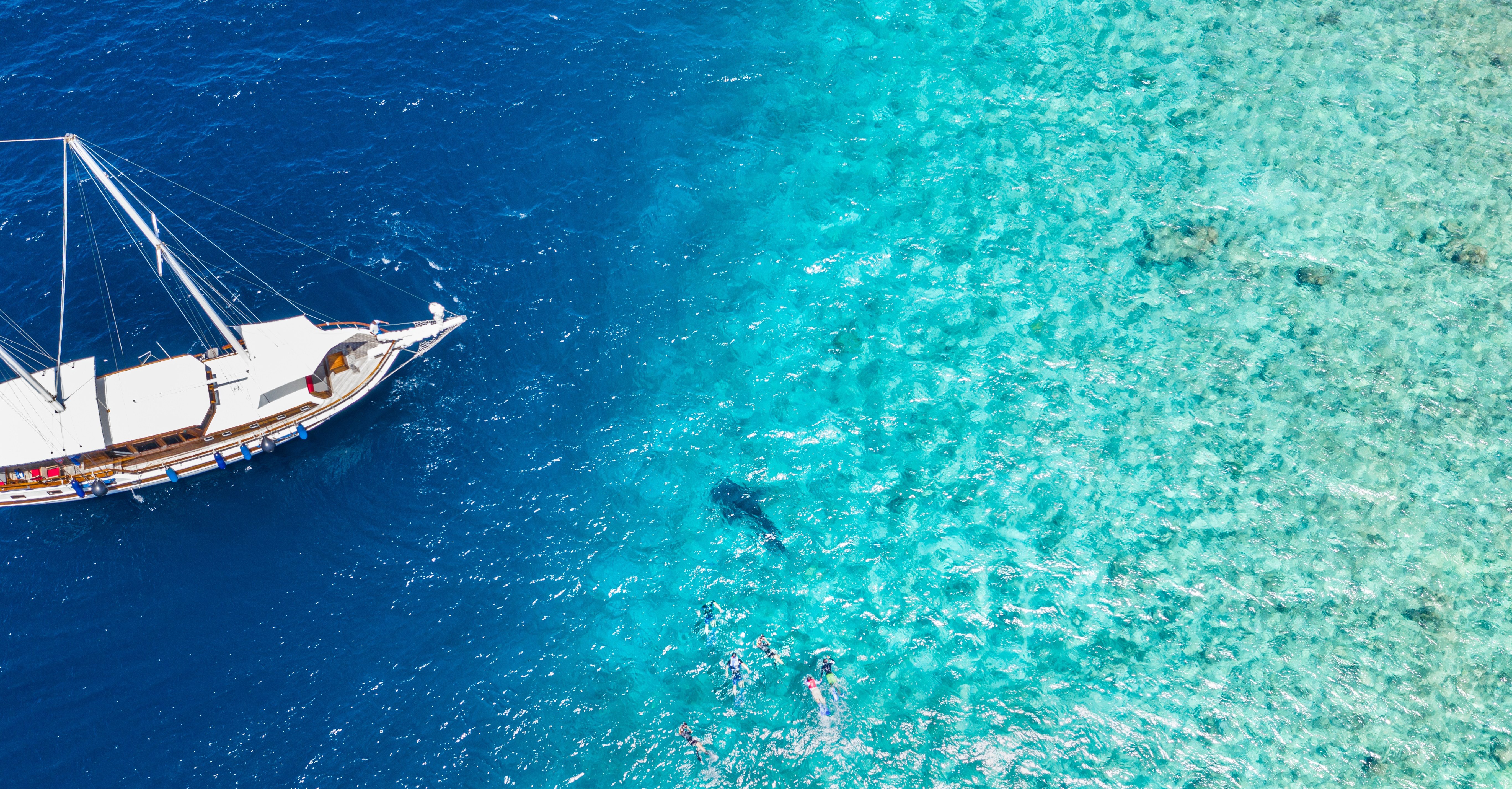
In Southeast Asia, conservation efforts focus on whale sharks in Sri Lanka, the Philippines, and the Maldives. These regions are crucial for whale shark conservation and research. Additionally, Australia’s Ningaloo Reef stands out as another prime location where volunteers can engage in whale shark research and conservation activities.
In addition to these popular locations, there are whale shark volunteer opportunities in parts of Africa and the Indian Ocean, such as off the coast of Mozambique and Tanzania, where whale sharks are known to migrate. Volunteer programs in these regions often include tasks like tracking and monitoring whale sharks, data collection, and assisting with educational outreach. Each of these sites offers unique opportunities to contribute to the protection and study of these magnificent creatures.
To maximize your volunteering experience, it's highly beneficial to familiarize yourself with the area of research before starting your project. Learning about the local marine environment, whale shark behaviors, and conservation challenges specific to the region will enhance your contribution. Additionally, gaining an understanding of the local culture and customs of the host country can provide a richer, more immersive experience and help you engage more meaningfully with both the conservation efforts and the local community.
How I can learn more about whale sharks?
To enhance your knowledge about whale sharks, begin with reading books and research articles authored by marine biologists and conservationists. These resources offer in-depth information on whale shark biology, behavior, and the various conservation challenges they encounter. Seek out works by leading researchers or articles published in marine science journals for comprehensive insights.
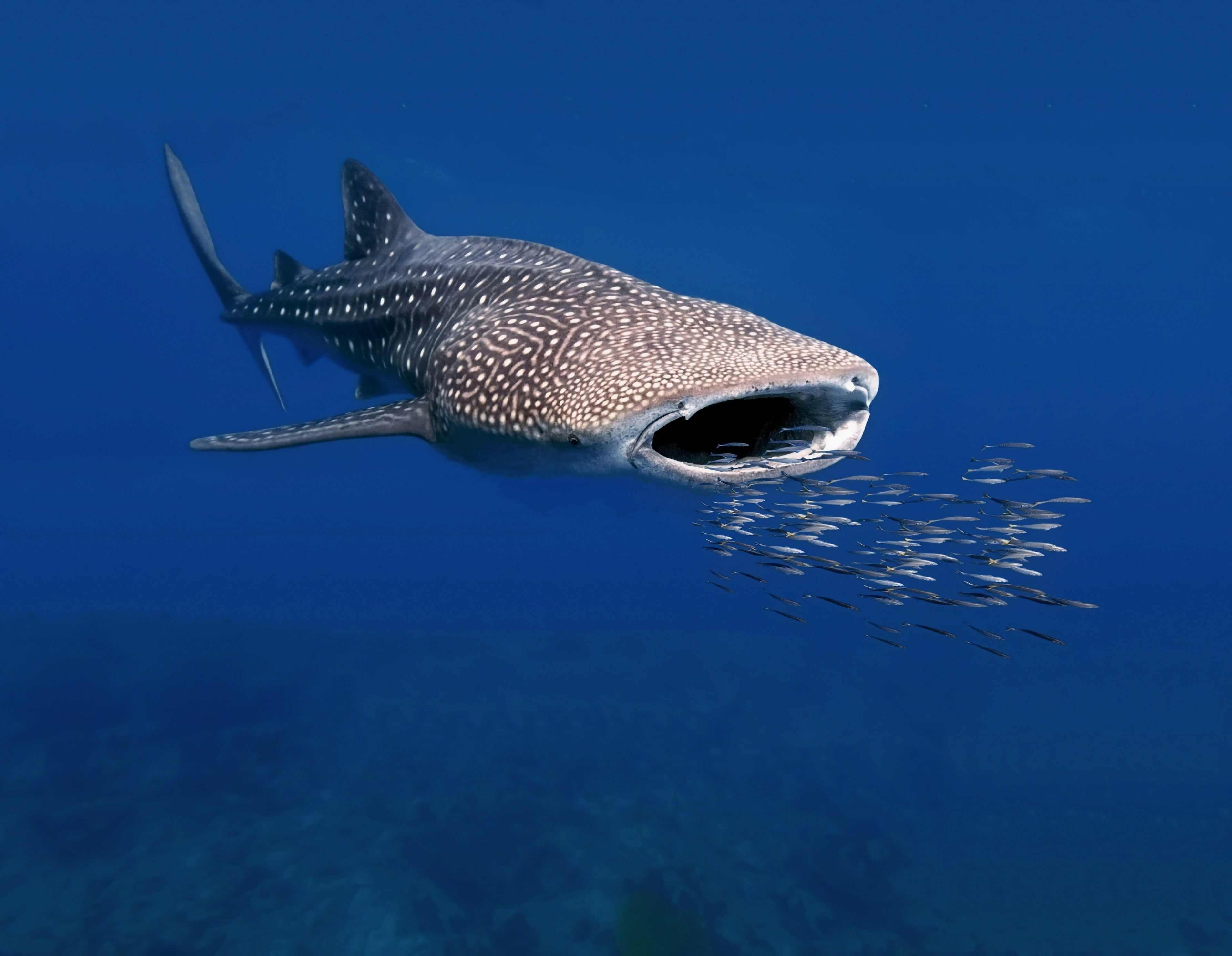
Visual media such as documentaries and educational videos can provide a vivid portrayal of whale sharks in their natural habitats. These films often showcase their feeding habits, migratory patterns, and the ongoing conservation efforts to protect them.
Participating in workshops, seminars, and talks organized by academic institutions, marine conservation groups, and research organizations is another excellent way to deepen your understanding. These events often feature presentations from experts who share the latest research and conservation strategies, offering opportunities for learning and connecting with professionals in the field.
Online resources such as blogs, forums, and social media communities dedicated to marine conservation can also be valuable. These platforms provide updates on current research, field studies, and whale shark conservation projects. Engaging in citizen science initiatives or volunteering with marine conservation organizations can offer practical experience and a more hands-on approach to understanding whale sharks and their conservation needs.
Five reasons to volunteer with whale sharks
- #1 Conservation efforts: Volunteering with whale sharks aids in the collection of vital data that informs conservation strategies. Your participation helps track the population health and migratory patterns of these endangered species, contributing to their protection and the preservation of marine ecosystems.
- #2 Educational opportunities: Working with whale sharks offers a chance to deepen your understanding of marine biology and ecology. You'll learn about the behaviour, physiology, and conservation needs of the world's largest shark, gaining valuable knowledge applicable to marine science and conservation fields.
- #3 Personal growth: Engaging with whale sharks can be a transformative experience, offering unique challenges and learning opportunities. You'll develop resilience, teamwork skills, and a deeper appreciation for marine life, enriching both your personal and professional life.
- #4 Global impact: By contributing to whale shark conservation efforts by volunteering, you become part of a global movement to protect marine species. Your efforts help to address larger environmental issues such as climate change and ocean pollution, making a difference on an international scale.
- #5 Community engagement: Many whale shark programs involve local communities in conservation efforts. By volunteering with whale sharks, you support these communities and their initiatives, helping to build local capacity for marine conservation and foster a sense of shared responsibility for protecting whale sharks.
Sign up for the newsletter
By clicking on “Subscribe now” I will subscribe to the Conscious Explorer newsletter with all the information about mindful travel. Information on the success measurement included in the consent, the use of the shipping service provider MailChimp, logging of the registration and your rights of revocation can be found in our privacy policy.
